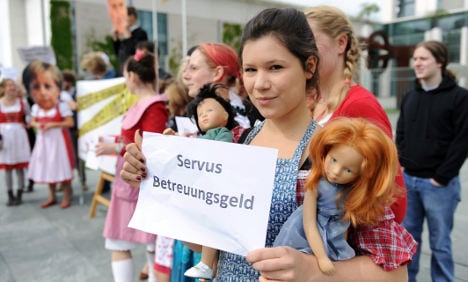As of January 2013, parents will receive €100 a month for two- and three-year-olds who are not sent to state-subsidised care facilities, while this sum will increase to €150 a month from 2014.
The pressure is now on to push the law through parliament before it breaks for the summer at the end of June.
The provision has been championed by the Christian Social Union (CSU), the Bavarian sister party to Angela Merkel’s Christian Democratic Union (CDU) – and was opposed by not only by much of the CDU but also the union’s coalition partner the Free Democratic Party.
The opposition parties have slated the idea, saying it encourages parents to keep their children from the enriching environment of kindergarten groups. “Nothing can justify this fundamentally wrong step in education policy,” said Social Democrat Manuela Schwesig.
She said the money would be better invested in expanding the network of day care facilities on offer.
Other groups have condemned the plan as increasing the pressure on women to stay at home with their children rather than returning to work. Some have warned that low-income and immigrant families will feel particularly pressured to keep their children out of day care.
Merkel and her family minister were allowing the CSU to “force the entire republic into its long-outdated ideas of women and family,” said Green Party MP Katja Dörner.
CSU family policy spokeswoman Dorothee Bär said it offered parents an alternative to state-subsidised day care.
The law provides for the money to be paid even if both parents are working and the children concerned are being cared for by relatives or au-pairs.
It is expected to cost around €300 million in 2013, and at least €1.1 billion from 2014.
DPA/The Local/hc




 Please whitelist us to continue reading.
Please whitelist us to continue reading.
Member comments